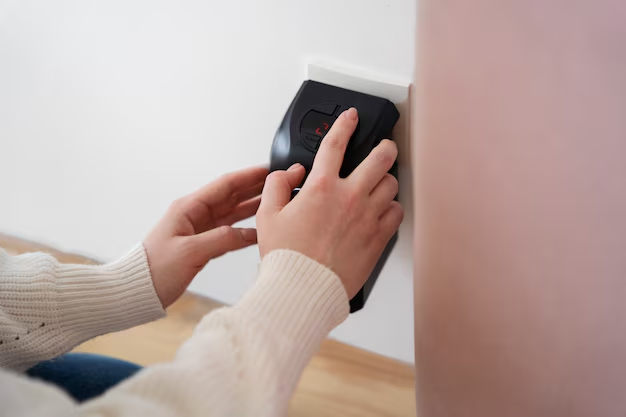Can You Safely Use an Extension Cord for Your Refrigerator?
Refrigerators, the unsung heroes of modern kitchens, ensure our food stays fresh and safe. But what happens when your refrigerator’s cord doesn’t quite reach an outlet? Can you simply plug it into an extension cord? This question might seem straightforward, but delving deeper reveals a world of electrical considerations, safety protocols, and potential pitfalls. Let's explore whether using an extension cord for a refrigerator is advisable and what alternatives you might consider.
Understanding the Basics of Refrigerator Electrical Needs
Before addressing the main question, it’s essential to understand a bit about how refrigerators operate. Refrigerators are powerful appliances requiring significant energy to maintain their cooling functions. They often need a dedicated circuit to operate optimally without tripping breakers or causing electrical overloads.
Power and Voltage Requirements
Most household refrigerators operate on 110-120 volts and need a current of up to 20 amperes. This hefty power load is why refrigerators are typically plugged directly into wall outlets instead of being routed through extension cords, which may not handle such demand.
Dedicated Circuits and Why They Matter
Many building codes and experts recommend installing refrigerators on dedicated circuits. This approach minimizes the risk of electrical issues that can arise when a high-power appliance shares a circuit with other devices, potentially causing frequent circuit breaker trips or overheating wires.
Is Using an Extension Cord a Good Idea?
Now, let’s tackle the heart of the matter: is using an extension cord for your refrigerator safe or advisable?
The Safety Concerns
Using an extension cord for powering a refrigerator carries several risks:
- Overheating: Standard household extension cords are often not designed to handle the power that a refrigerator demands, which can lead to overheating.
- Fire Hazards: The risk of fire increases with overheating extension cords, particularly if they're not designed for heavy-duty applications.
- Voltage Drop: Long extension cords can cause a drop in voltage, affecting the refrigerator’s compressor and potentially reducing its lifespan.
Why Some People Consider It
Despite the risks, some people opt to use extension cords due to practical circumstances, such as outlet inaccessibility or temporary location issues. If this applies to you, understanding the types of extension cords is crucial.
Choosing the Right Extension Cord (If You Must)
While the consensus suggests avoiding extension cords for refrigerators, there might be situations where it seems necessary. In these rare circumstances, choosing the right type of extension cord is vital.
Characteristics of a Suitable Extension Cord
- Heavy-Duty Ratings: Look for cords labeled as heavy-duty which are designed to handle higher power demands.
- Correct Gauge: Thicker cords (with a low AWG number like 12 or 10) can carry more power with less resistance.
- Short Length: To minimize voltage drop, use the shortest cord possible.
- Three-Pronged Connection: Ensure the cord and plug are grounded to prevent shock and other risks.
Alternative Solutions
If using an extension cord feels risky or cumbersome, consider alternative solutions to power your refrigerator safely.
Installing New Outlets
For long-term safety and functionality, consider installing a closer outlet. This approach can resolve reach issues without the need for extension cords. Hiring a professional electrician ensures compliance with local building codes and standards.
Repositioning the Refrigerator
Reorganizing your kitchen layout might be a viable, if inconvenient, solution. Many modern kitchens have flexible designs that can accommodate appliance movement without much hassle.
Key Takeaways for Safe Refrigerator Usage
Here’s a quick summary to help you make informed decisions:
- ⚠️ Safety First: Avoid using an extension cord if possible due to risks of overheating and fire.
- 🚫 Voltage Awareness: Be cautious of voltage drop effects from prolonged cord use.
- 🛠 Professional Help: Consider hiring an electrician to install a new outlet for long-term solutions.
- 🧊 Direct Plug-In: Always prefer plugging refrigerators directly into wall outlets.
Closing Insights
Using an extension cord for your refrigerator may seem like a convenient solution, but understanding the risks involved is crucial. It's not just about plugging in for power; it's about ensuring your home remains safe and your refrigerator functions optimally. Prioritize long-term fixes like installing new outlets or repositioning your layout for a hassle-free kitchen experience. Embrace safe electrical practices and enjoy the peace of mind that comes with a well-functioning, risk-free kitchen appliance setup.

